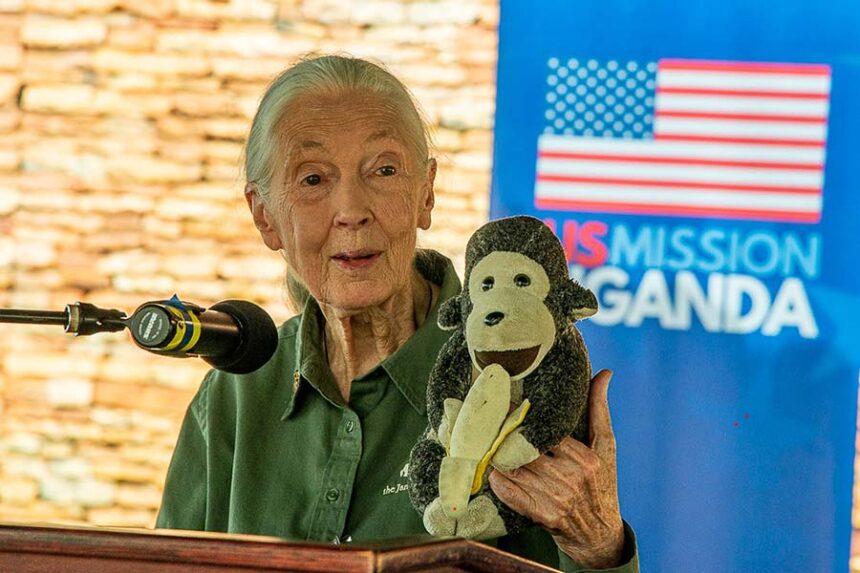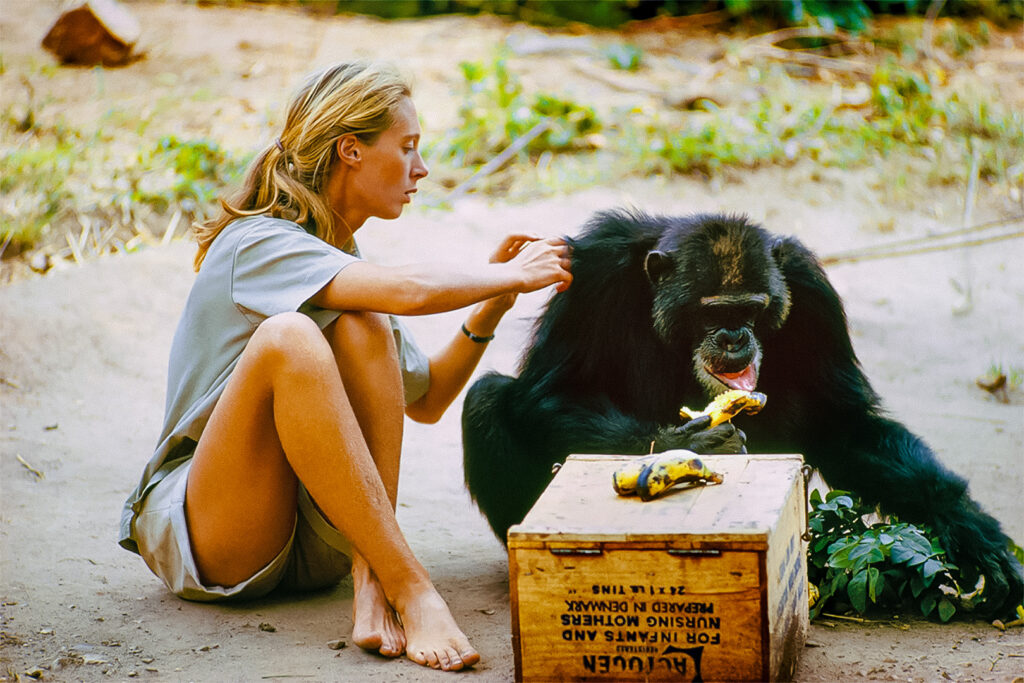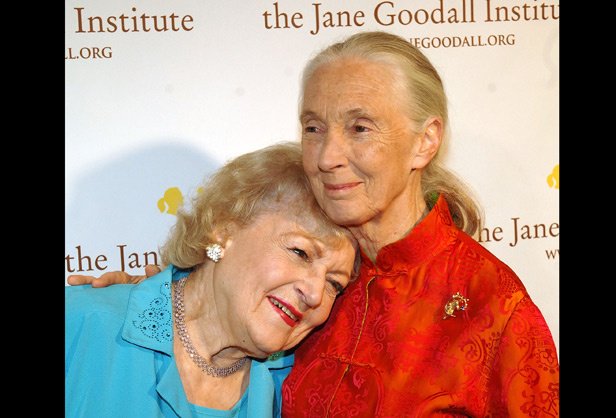Goodall’s longevity can be attributed to:
- Lifelong learning and a clear purpose.
- An active, outdoor lifestyle.
- Keeping calm.
- A plant-based diet.
- Being compassionate and maintaining strong social connections.
Dr. Jane Goodall, the world-renowned primatologist and anthropologist, is not only celebrated for her groundbreaking work with chimpanzees but also for her remarkable vitality and longevity. Her life, spanning over nine decades, offers profound insights into the habits that contribute to a long, healthy, and cognitively sharp life. This article explores the key pillars of Goodall’s lifestyle, examining them through the lens of modern science to understand how her daily practices have supported her exceptional well-being and delayed the effects of aging on her brain.
The Power of Purpose and Lifelong Learning
Goodall’s life was driven by a powerful sense of purpose, a factor increasingly recognized by science as a cornerstone of longevity and cognitive resilience. Her mission, which evolved from primate research to conservation advocacy, kept her mentally engaged and motivated. Research from UC Davis corroborates this, showing that a strong sense of purpose can reduce the risk of cognitive impairment by as much as 28%. This sense of purpose, which can be derived from various sources such as relationships, work, or personal goals, appears to bolster the brain’s resilience against age-related decline.
Goodall’s insatiable curiosity and her commitment to lifelong learning likely played a crucial role in maintaining her cognitive health. Her regular travels and engagement with new cultures and ideas provided constant mental stimulation, which is essential for building cognitive reserve. This mental scaffolding helps the brain resist damage and decline, effectively slowing the cognitive aging process.
“You cannot get through a single day without having an impact on the world around you,” wrote Goodall in her book, Jane Goodall: 40 Years at Gombe. “What you do makes a difference, and you have to decide what kind of difference you want to make.”

The Anti-Aging Effects of an Active, Outdoor Life
Physical activity was a constant in Goodall’s life, from her early days trekking through the forests of Tanzania to her more recent years of global travel. This commitment to an active lifestyle is a well-established factor in promoting longevity. As a Vanderbilt University study highlights, even 15 minutes of fast walking per day can reduce mortality risk by up to 20%. Regular physical activity, like that practiced by Goodall, enhances cardiovascular health, which is directly linked to brain health. By improving blood flow to the brain, exercise delivers essential oxygen and nutrients that support cognitive function and protect against age-related neurodegenerative diseases.
Goodall’s profound connection with the natural world was also a significant contributor to her well-being. Spending time outdoors, a practice now known as “forest bathing” or “shinrin-yoku,” has been shown to have numerous health benefits. Studies indicate that exposure to green spaces is associated with lower mortality, reduced stress, and improved mental health. These benefits are attributed to a combination of factors, including increased physical activity, reduced exposure to urban stressors, and the restorative effects of nature on the mind.
A Plant-Based Diet and the Mindful Art of Calm
For years, Jane Goodall has followed a vegan diet, and credits her sustained energy levels to quitting meat. The scientific community has increasingly recognized the benefits of plant-centric eating for both physical and cognitive health. Diets rich in fruits, vegetables, and whole grains are associated with a lower risk of cardiovascular disease and inflammation, both of which are implicated in cognitive decline. While some studies suggest that poorly planned vegetarian or vegan diets can lead to nutrient deficiencies, a well-balanced plant-based diet, rich in antioxidants and other neuroprotective compounds, can be a powerful tool for promoting brain health and longevity.

In addition to her dietary choices, Goodall cultivated a remarkable sense of calm, a skill she honed during her years of patient observation in the wild. This ability to manage stress through mindfulness and meditation is a potent anti-aging strategy. Chronic stress is a known contributor to accelerated aging, impacting everything from cardiovascular health to immune function. By cultivating a calm and centered mind, Goodall mitigated the detrimental effects of stress on her body and brain, preserving her cognitive function and overall vitality.
The Vital Role of Social Connection and Compassion
Throughout her life, Jane Goodall nurtured strong social connections, from her family and colleagues to the global community of her Roots & Shoots program. The importance of these social bonds for health and longevity cannot be overstated. An analysis of 148 studies showed that strong social relationships are linked to a 50% lower risk of death. Social engagement stimulates the brain, builds cognitive reserve, and provides a buffer against the stresses of life.
Goodall’s life was defined by her deep compassion for all living beings. Her empathy for animals, which was once considered unscientific, is now understood to be a profound source of joy and well-being. The companionship of animals has been shown to have numerous health benefits, including reduced stress and improved cardiovascular health. For Goodall, this connection with the animal world was a source of both personal fulfillment and professional purpose, further enriching her life and contributing to her remarkable longevity.

Finding Your Version of Jane’s Life
In conclusion, Jane Goodall’s life offers a compelling blueprint for healthy aging. Her daily habits—a strong sense of purpose, a commitment to lifelong learning, regular physical activity, a deep connection with nature, a plant-based diet, a calm and mindful disposition, and strong social bonds—are all supported by a growing body of scientific evidence. By embracing these practices, we can all learn from her example and cultivate a life of greater vitality, longevity, and cognitive health.